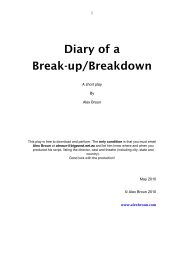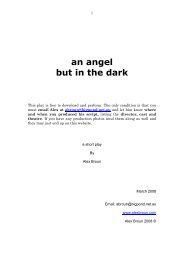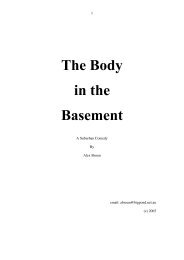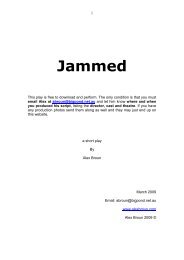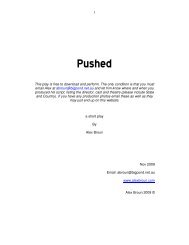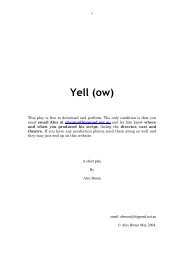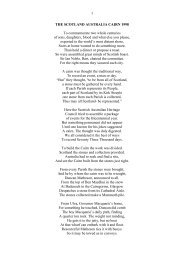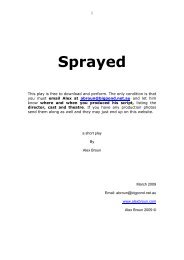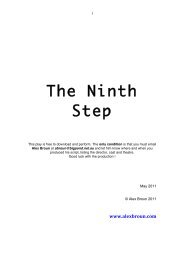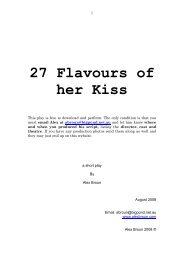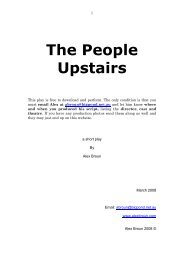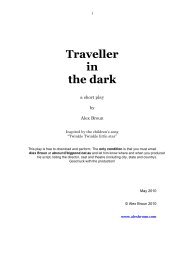THE WAR ON DRUGS by Malcolm D. Broun OAM QC ... - Alex Broun
THE WAR ON DRUGS by Malcolm D. Broun OAM QC ... - Alex Broun
THE WAR ON DRUGS by Malcolm D. Broun OAM QC ... - Alex Broun
Create successful ePaper yourself
Turn your PDF publications into a flip-book with our unique Google optimized e-Paper software.
6We cannot fill our jails and courts with the customers of the drug trade. There willcontinue to be great costs of enforcement, and great costs of jail terms and prisons.Every million dollars spent on every big drug bust is that much money that thegovernment cannot spend on education or payment for the costs of medical treatmentor rehabilitation of the drug addicts. There is almost universal acceptance that victimsof the drug trade should be helped. Education as to the bad effects of hard drugs hasnot stopped the trade. Medical treatment and hospitalisation is a continuing expenseand rehabilitation is expensive.Since a drug trial is going to cost more to the government than a murder trial, and athat criminal investigations in the drug trade is much more expensive than anynumber of break and enters or bank hold ups. Should we not follow from theexperience of the tobacco industry and from alcohol producers in getting thecustomers to pay high taxes at least equivalent to the profit which the drug dealers anddistributors make? The taxes have to be assessed so that they are really adiscouragement to the purchaser but on the other hand, endeavour to compensate thegovernment or the country from the enormous cost of the drug trade <strong>by</strong> spending themoney raised not on the dealers and distributors as compensation for their risks but tocompensate the government for cost of hospital and medical care that the addicts needand hopefully education.A high powered and well run advertising campaign on radio, television andnewspapers to educate the customers of the drug trade would be a much cheaper wayof trying to stop the drug trade, than the now very expensive and generallyunsuccessful war.The social consequences of disease and illness is much the same for tobacco andalcohol abuse on the one hand and illicit drugs on the other. It may be a difficultcalculation as to which costs the most. Criminalisation is not working against drugs,as it never did against tobacco or alcohol abuse. Illegal and legal abuse substancesneed hospital care, medical services. Both could use as much education as can beafforded. We are apparently making a distinction that people who work it the tobaccoand liquor industry are nicer people than hard drug dealers. That is just aconsequence of criminalisation.



